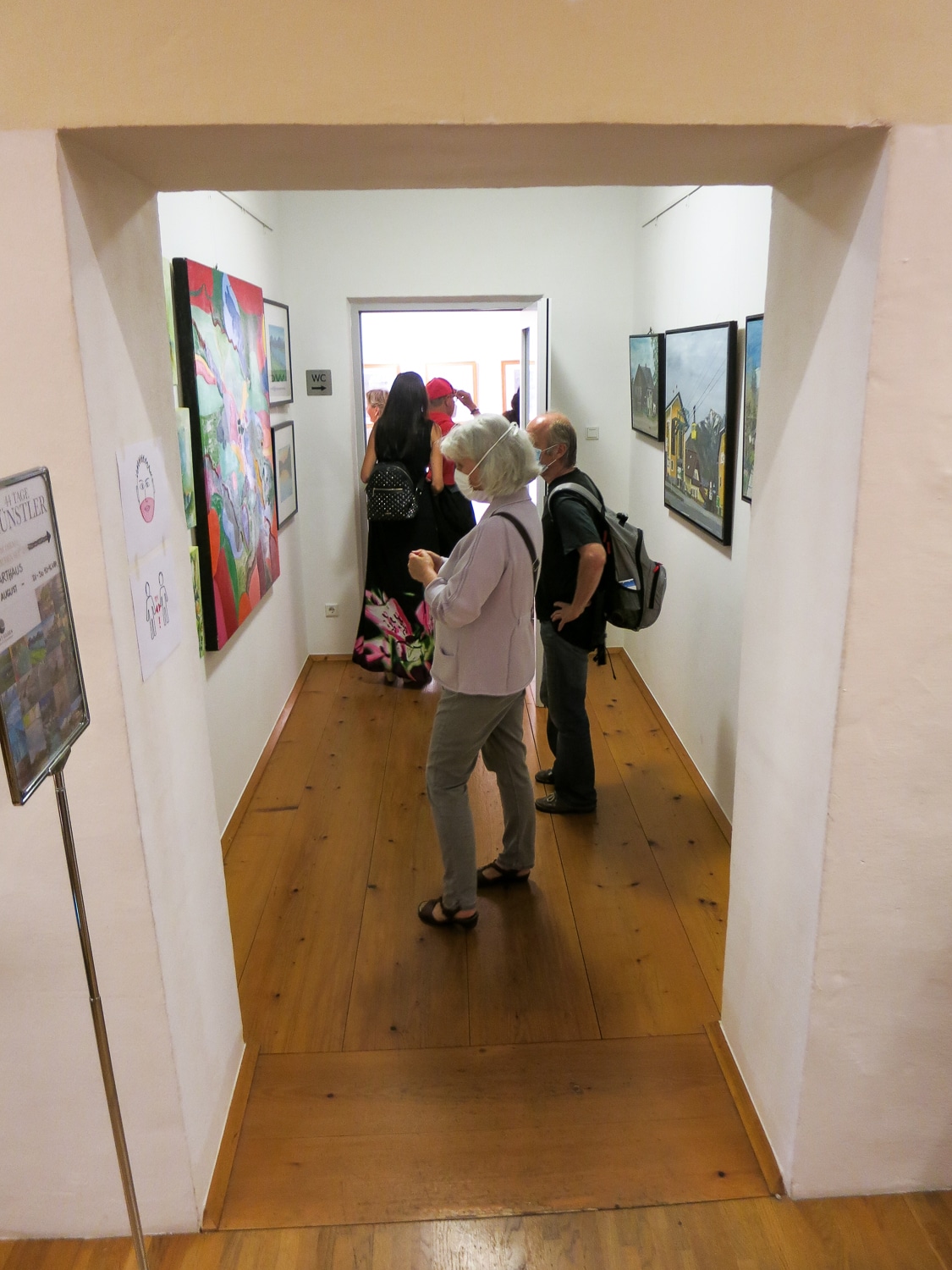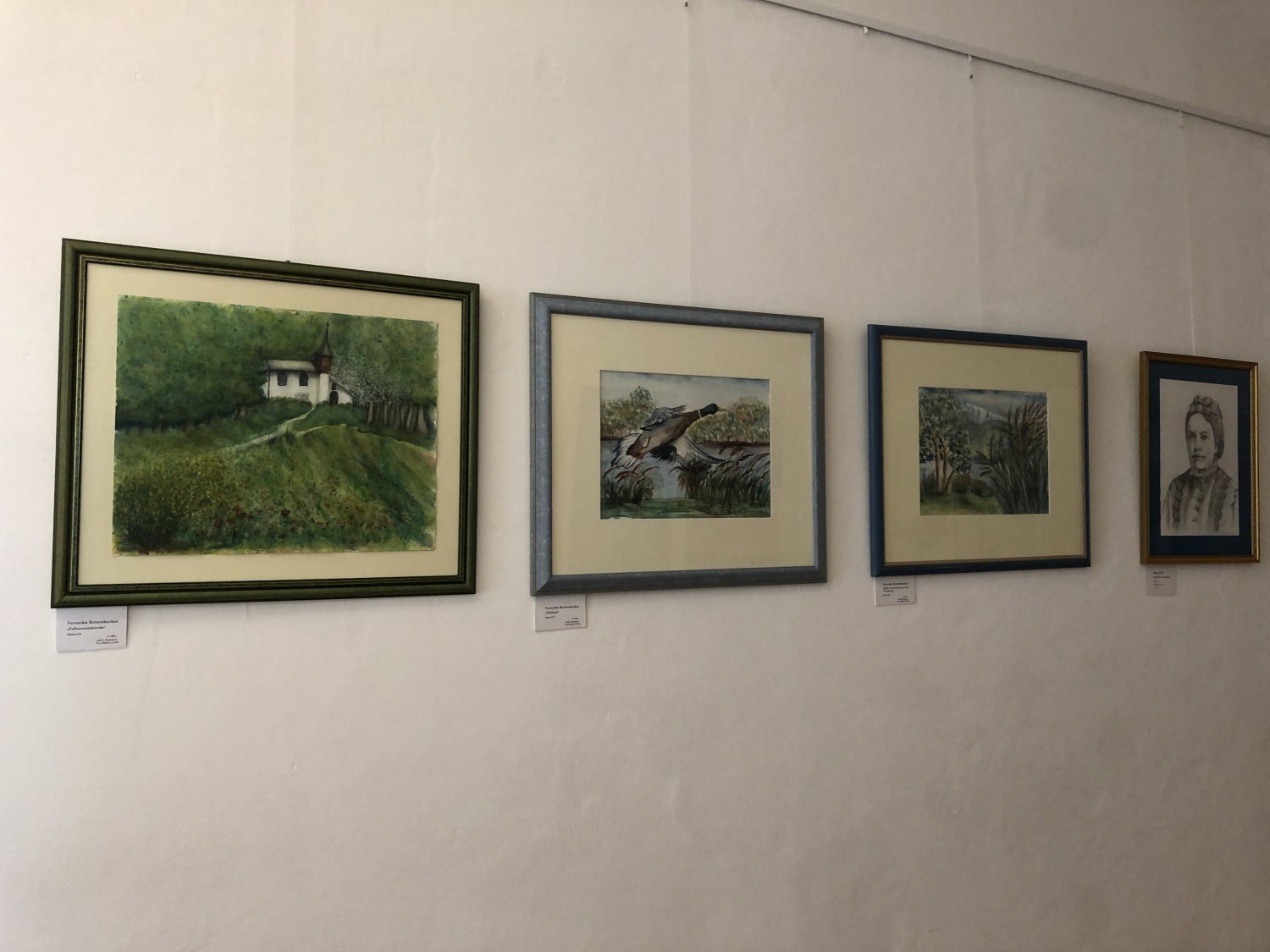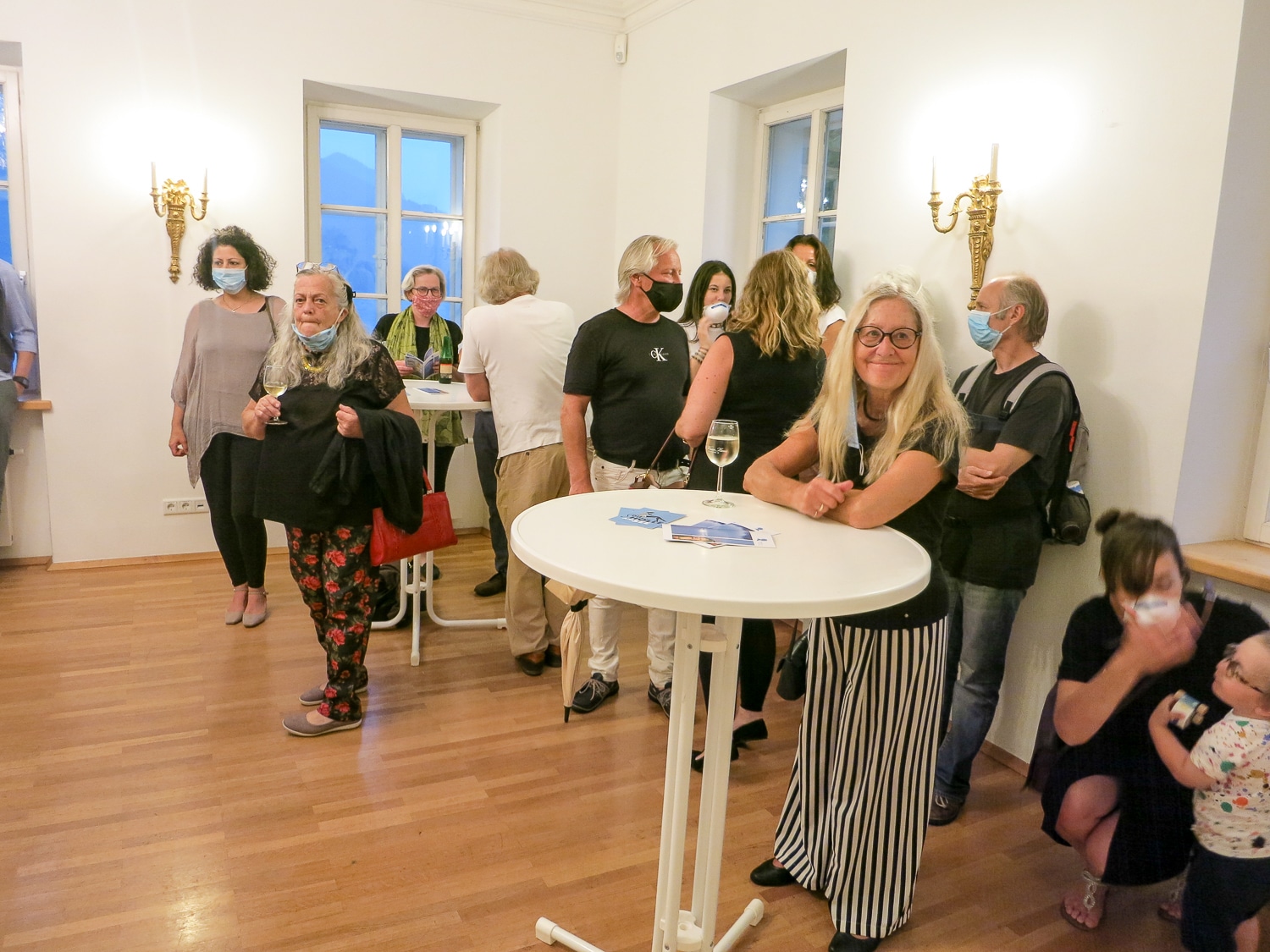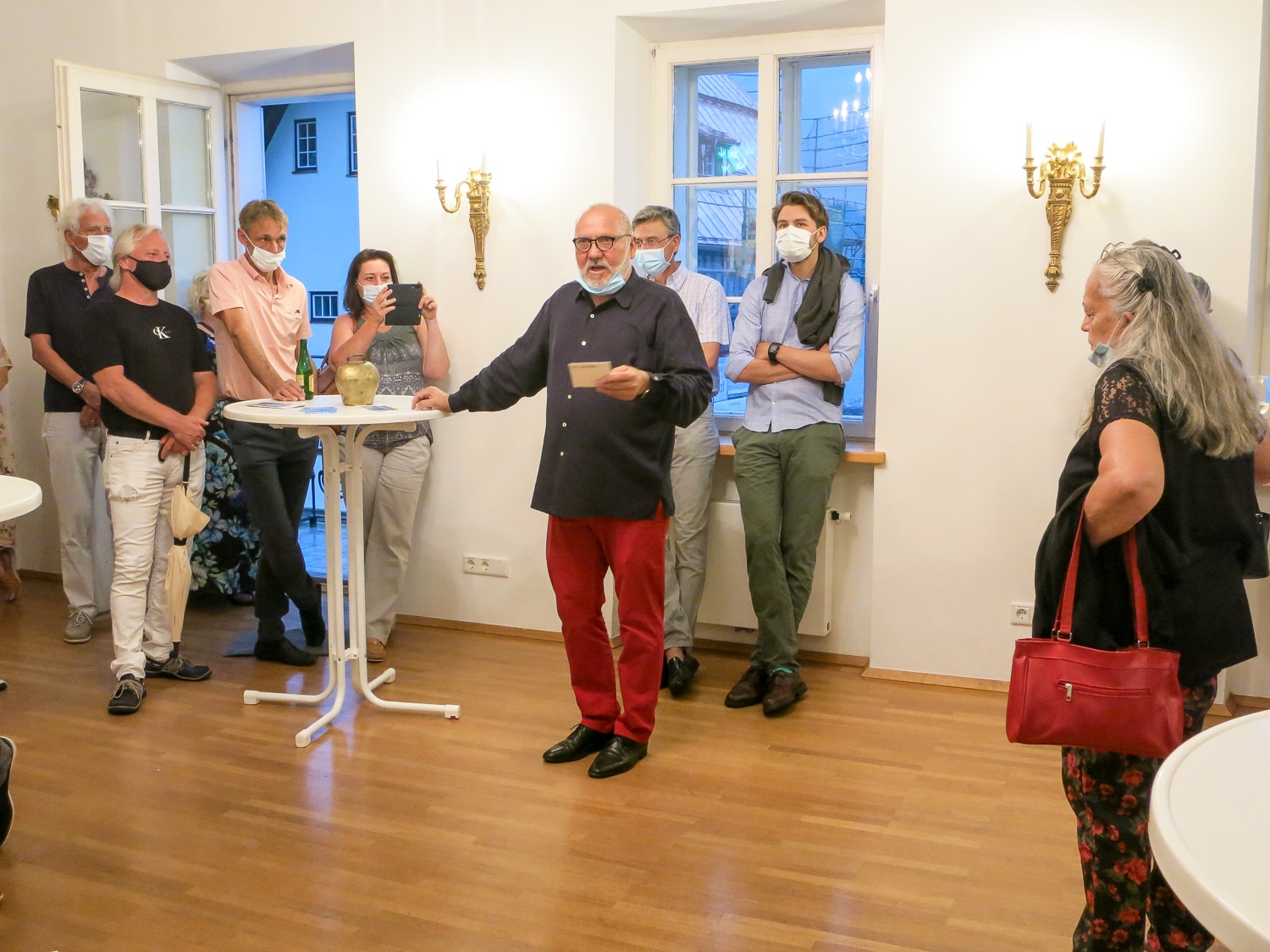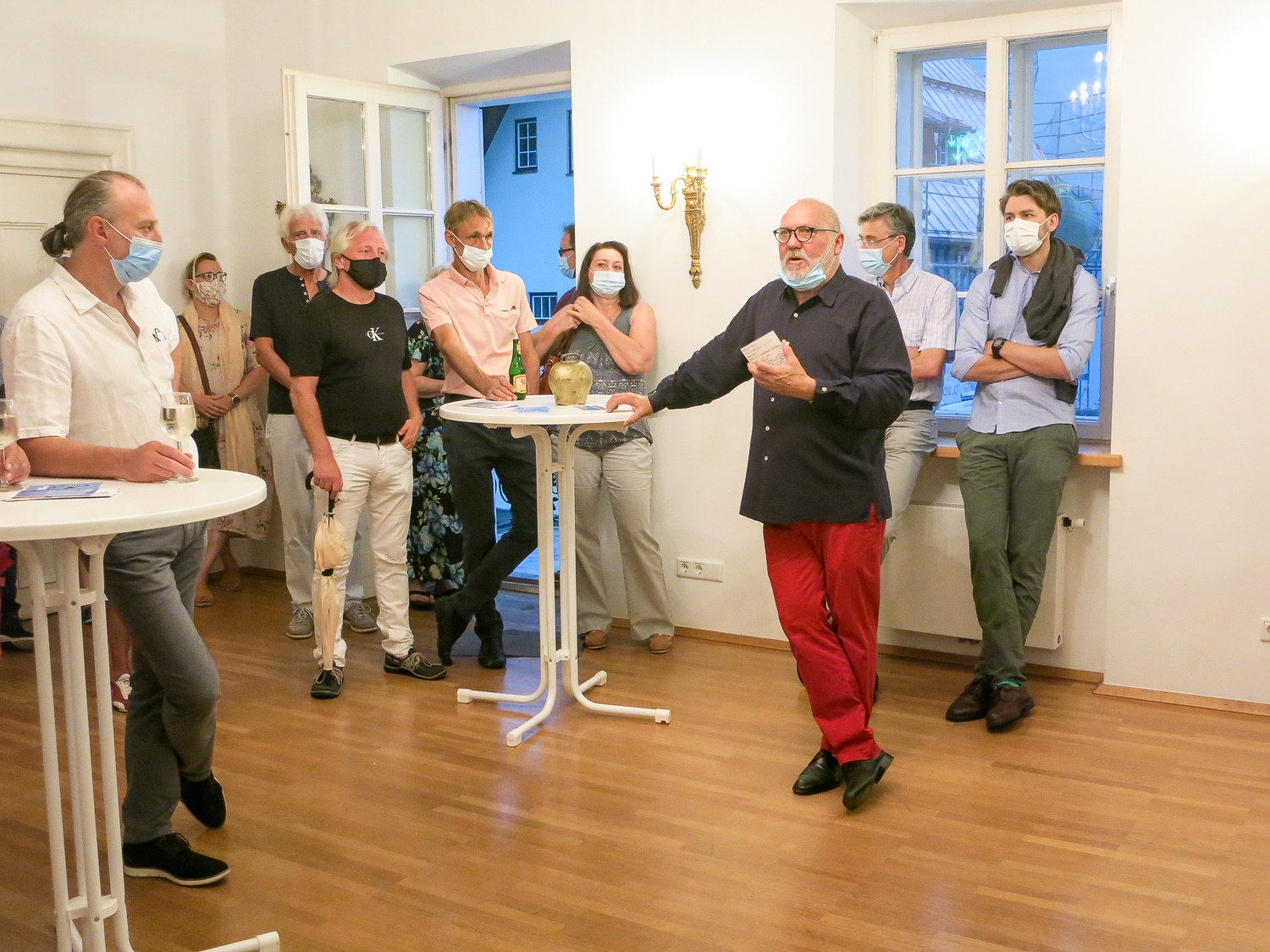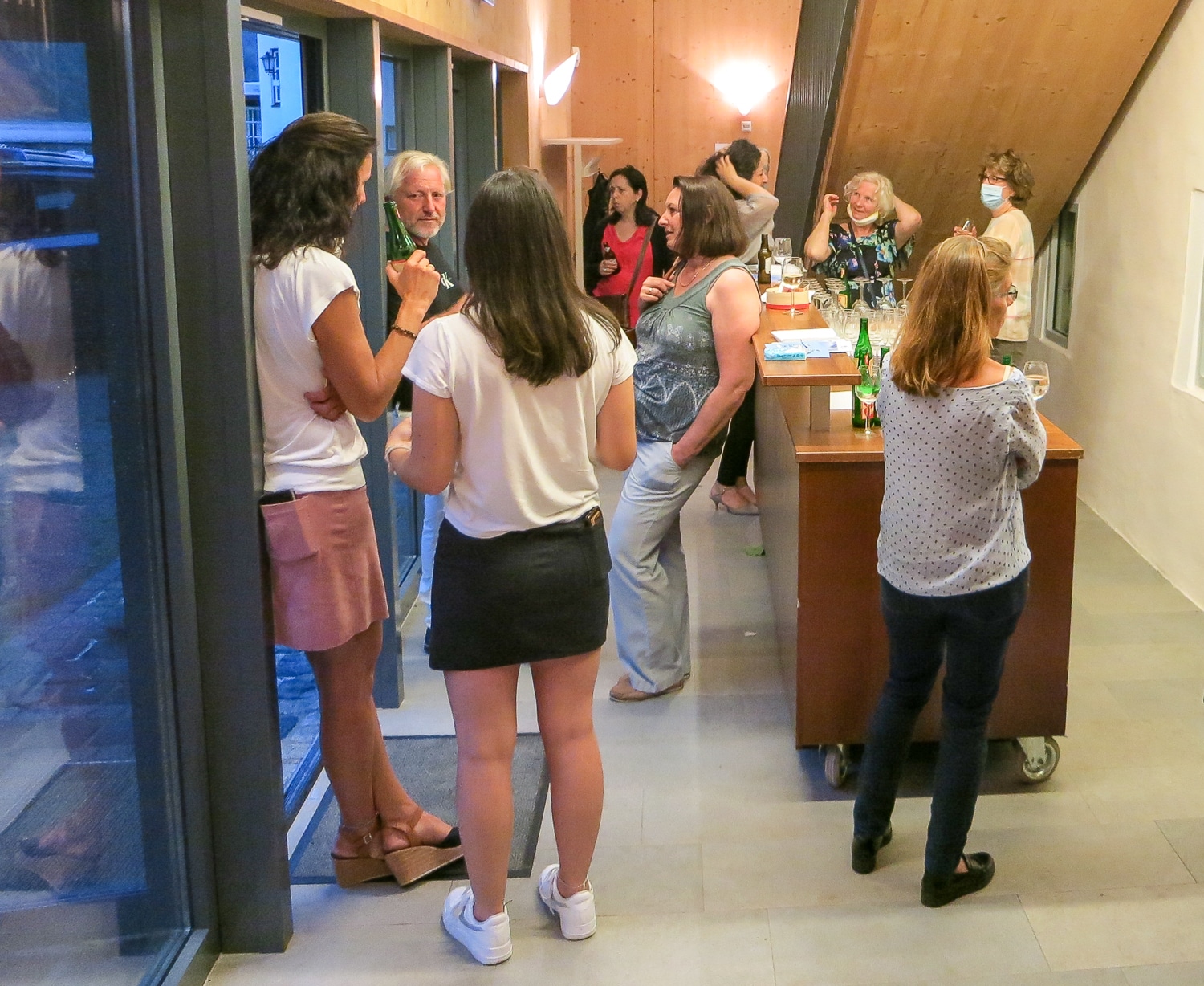Group Exhibition at the Mozarthaus in Sankt Gilgen.
After the cancellation of the exhibition in April 2020 due to Corona, the exhibition of “44 Days – 22 Artists” is now takeing place at the Mozarthaus in Sankt Gilgen (Austria) during the months of July and August 2020.
“44 Days – 22 Artists” is the trademark of a group of artists who are now exhibiting together in Sankt Gilgen for the third time. The theme of this year’s exhibition is “Around the lake”.
The exhibiting artists are all from around the Wolfgangsee (Wolfgang’s lake), mainly from Sankt Gilgen. They are a group who is enthusiastically dedicated to painting. The crowd is a colourful mix, from well-known professional painters to actors who practice painting as a hobby and a way of compensation. Thus there is a lot of variety of different techniques, motives and ways of expression represented, from realistic to abstract. One can only marvel at the potential of creativity in Sankt Gilgen and around the Wolfgangsee.

Exhibiting artists
The following artists have contributed pictures to the joint exhibition this year:
Barbara Ausweger, Christina Bayr, Jutta Blühberger, Anton Eigenstuhler, Hermann Hohenberger, Edith Hosp, Konstanze Kitt, Jutta Kowatsch, Veronika Künßberg, Kir Lamont, Ingeborg Payer Heribert Pfeiffer, Baharak Pöll, Heinrich Reindl, Veronika Rettenbacher, Petra Schmidbauer, Sonja Schlossleitner, Ewald Stöckl, Margit Strobl, Tanja Traussnigg, Martin Rudolf Wimmer, Elisabeth Ziller

Opening hours of the exhibition
1 July – 31 August 2020
daily except Monday
from 10 – 16 o’clock
Venue
Mozart House St. Gilgen on Lake Wolfgang | Nannerl Museum
Ischler Straße 15, 5340 St. Gilgen, Austria
Initiator
Future Sankt Gilgen, Chairman DI Anton Eigenstuhler
Art and culture are not just decoration, but food for all.
(Max Reinhardt)
Quote from the original invitation:
Creativity and culture are key factors for individual social and economic development. Culture is therefore also an indispensable asset for regions and their future.
Dealing with art and culture challenges and promotes the development of talent. It strengthens mental agility and innovative power, as well as the awareness of community and home.
It is precisely these values, as well as the promotion of an active village community, that are the main objectives of the Zukunft Sankt Gilgen association.
The exhibition, the opening of the Mozarthaus, the meeting of active people and those interested in culture, is a step in this direction.
SANKT GILGEN
WITH US in Salzkammergut
Vernissage
The vernissage (opening) of the exhibition “Around the lake” took place on Friday, 10 July 2020 at 7 pm at the Mozarthaus in Sankt Gilgen.
The opening of the exhibition, which was planned to take place outdoors, was unfortunately prevented by a thunderstorm at short notice. Shortly before 7 pm it began to rain and storm heavily. The wind was so strong that it tore the doors out of people’s hands and threw windows shut. Just in time most of the guests and participants took refuge in the Mozarthaus. There the official opening took place by the chairman DI Anton Eigenstuhler in the Prince’s Chamber.
As it was difficult to keep the distances in the rooms, most of the guests wore a nose-mouth protection. Except of course while enjoying the drinks and giving the official speech.
But the weather and the compulsory masks did not spoil the good mood of the numerous guests.
Those who missed the opening ceremony can still view the paintings until the end of August during the opening hours mentioned above.



